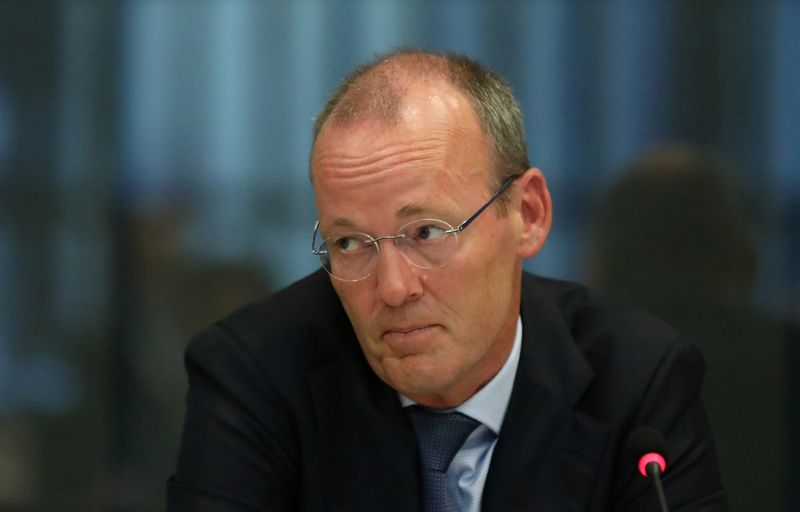By Francesco Canepa and Balazs Koranyi
FRANKFURT (Reuters) -The European Central Bank pushed back on Thursday against market bets that it would slow the pace of its interest rate hikes given recent falls in inflation and easing pressure to keep up with policy moves by other central banks.
Traders had recently trimmed their expectations for how much the ECB would raise borrowing costs, comforted by data showing lower inflation in both the euro zone and the United States and related talk of smaller hikes by the U.S. Federal Reserve.
But ECB President Christine Lagarde and fellow policymaker Klaas Knot said investors were underestimating the ECB's determination to bring inflation in the 20-nation euro zone back to its 2% target, from 9.2% last month.
"I would invite them to revise their positions," Lagarde said during a panel conversation in Davos, Switzerland. "I think they would be well advised doing so."
Markets had been expecting the ECB's 2% deposit rate to reach around 3.2% by the summer, a big downgrade from levels around 3.5% priced in at the turn of the year.
While a 50-basis-point hike for February had been fully priced in, markets were vacillating between 25 and 50 bps at its March meeting.
Dutch central bank chief Knot, a policy hawk, said recent market moves were not "compatible with a timely return of inflation towards 2%" and that the ECB would continue raising interest rates at the current clip.
"Most of the ground that we have to cover, we will cover at a constant pace of multiple 50-basis-points hikes," Knot told CNBC.
Accounts of the ECB's Dec. 15 meeting published on Thursday showed a difficult compromise struck whereby policymakers agreed to slow the pace of hikes from 75 basis points to 50 bps in return for a commitment to several rate hikes of the same size.
Inflation in the euro zone has surged in the past 18 months, fuelled by a combination of factors including an uneven reopening of the world economy after the COVID-19 pandemic and a leap in energy prices following Russia's invasion of Ukraine.
Price growth peaked at 10.6% in October, trending down since thanks largely to subsidies and lower energy prices.
U.S. inflation has also been in a downtrend, leading some Fed policymakers to open the door to smaller rate hikes of just 25 basis points apiece.
That has led traders in euro zone money markets to cut their bets for the ECB, which like most central banks around the world mirrored the Fed in raising rates last year, albeit later.
But the accounts of last month's meeting showed policymakers were worried about underlying price pressures and wages.
"Even if headline inflation numbers came down sharply in the course of 2023, largely owing to base effects, this was not likely to be the case for underlying inflation," the ECB said in the accounts.
"As wage developments in the euro area were accelerating, second-round effects through higher wages appeared to be starting to materialise."
